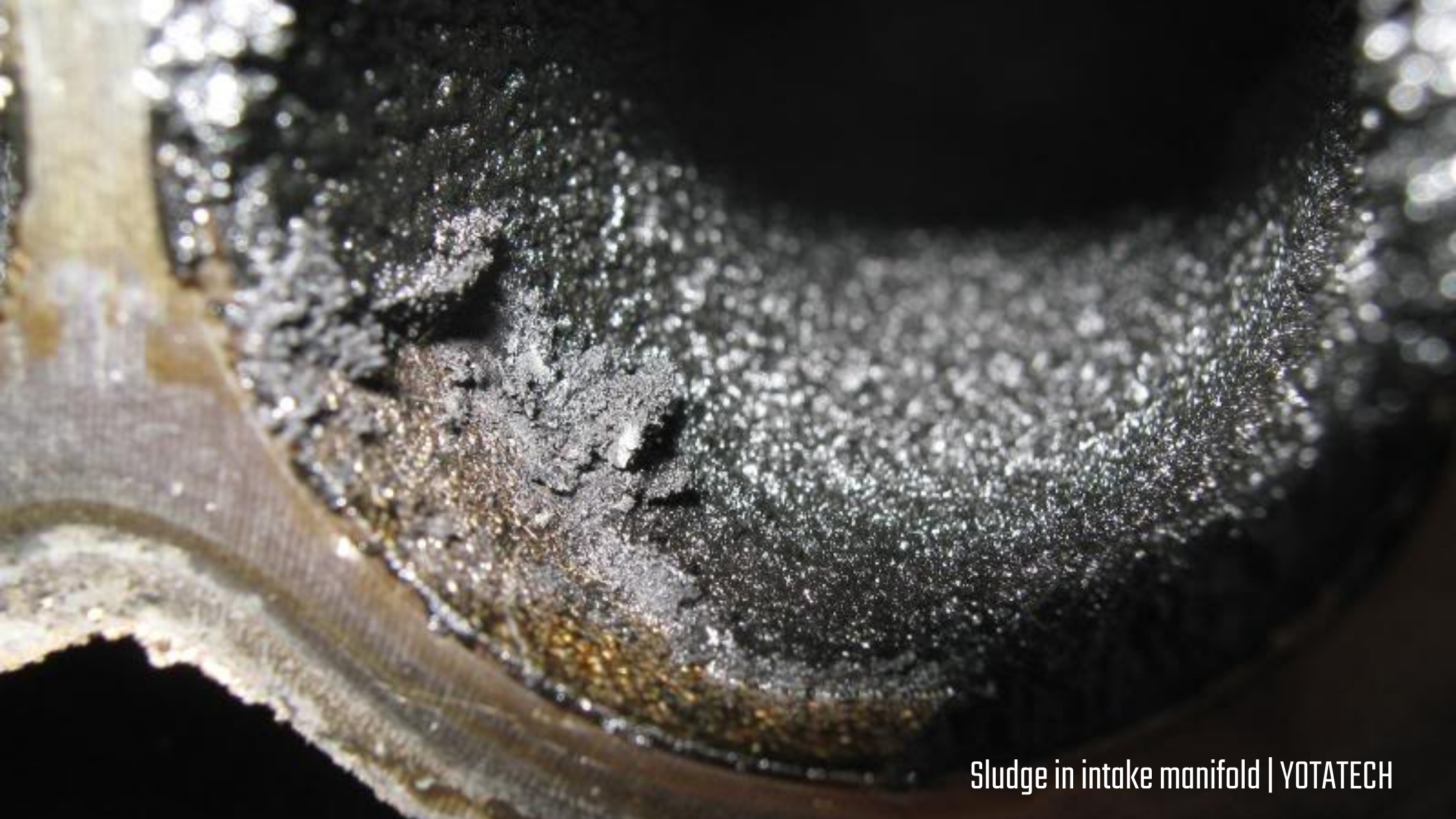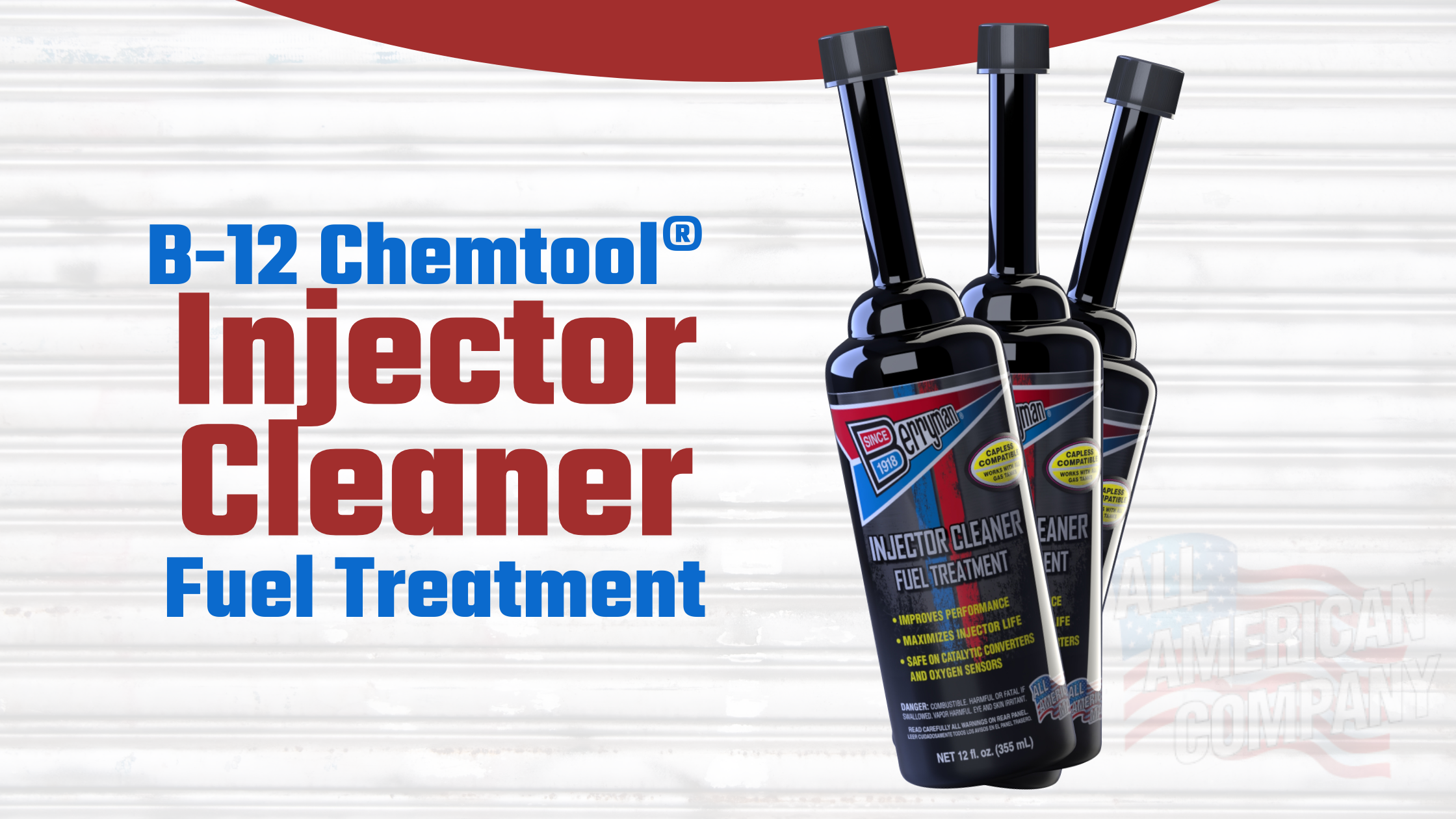How do you check if it’s time for a fuel system cleaning? When you experience these 4 signs of decreased fuel system performance?
- ∙ The gas pedal is hard to press
- ∙ Poor acceleration
- ∙ Rough idling and/or stalling
- ∙ Reduced gas economy
Sometimes, these are problems related to other systems/parts failures. But many times, a thorough fuel system clean-up is all you need!
If you’ve never had your fuel system serviced, there may be improper fuel delivery causing the RPMs to jump up and down, or thwarting sufficient power, or prohibiting any start at all. As a crucial component of fuel efficiency, your gummed up fuel system may also be lowering your MPGs! So if you notice getting fewer miles to the gallon than before, it may be time to clean the vehicle’s dirty culprits.
Following the path of the fuel — from the tank to the engine and air intake — a complete fuel system cleaning should incorporate few major components:
- ∙ Removing any carbon deposits or clogging from the throttle body.
- ∙ Eliminating buildup from any components between the throttle body and the engine’s cylinders.
- ∙ Cleaning affected fuel injectors and making sure the entire system is free of deposits.
Let’s walk through the maintenance steps together.
Throttle Body Cleaning
The purpose of the throttle body is to control air intake to your engine. When it isn’t completely functioning, due to built-up grime and carbon deposits, there’s a direct effect on how smoothly your engine operates. That’s why throttle body cleaning should be considered a necessary part of your vehicle maintenance!
With the use of the right product, you can easily remove dirt and debris buildup. Our pour-in Berryman® B-12 Chemtool® Carburetor, Fuel System and Injector Cleaner dissolves a variety of fuel residue deposits to keep the carburetor, choke, and throttle body clean.
Read how it worked for John‘s Suzuki & Marvin‘s high-mileage Nissan:
“I have a 79 Suzuki GS850g. Started to lose power while running and stalling out. Was going to get a carb rebuild, but tried the Sea stuff to no avail. Decided to try this product. Used 15oz in about 3 gallons of gas. Bike was running smoothly within 1/2 an hour. Would 100% recommend and will continue to use.”
“I have a 2006 Nissan Murano 3.5 engine with 213000.0 miles that had a rough idle so I tried two other products and noticed little difference. Then I remembered this product from many years ago, purchased 2 cans and added both cans to a full tank gas. It has a 19 gallon tank. After driving the first 100 miles I notice car idling very good; it had a lot more power. I was so impressed with the performance, I also added 2 cans to my 2009 Chevy Silverado 5.3 with a 25 gallon tank and 132000.0 miles on the engine. I received the same results. I can say there is an increase on the car from 18 mpg to 20 mpg on the interstate and my truck also had 2 gallon gain also. I’m very impressed with this product, so I wanted to share.
Choose Chemtool® (part #0116) for the one-two-punch to knock out fuel system deposits!
Want to see more customer experiences? Visit our ongoing list of HESTimonials.
Intake Manifold Cleaning
Just like the throttle body, an intake manifold is prone to carbon buildup.
An intake manifold is the component the air goes through before reaching the engine and mixing with the fuel. To deliver the right amount of air, the intake manifold connects to each of the cylinders through a series of tubes — each tube equal in diameter.
Also used to recirculate exhaust gasses for more complete combustion, buildup in this area looks like black goo or sludge. When undesirable exhaust particles get lodged inside the air intake, clogging begins. This may significantly reduce your manifold’s air-passing capacity.

To find a proprietary universal application system that works with both air-intake and manifold vacuum injection systems, look no further than our 4-Step Professional Air & Fuel System Maintenance Kit. This kit was designed to clean all major air-intake components in your fuel-injected, gas-powered vehicles!
Fuel Injector Cleaning
Your fuel injectors control the volume of fuel delivered to the combustion chamber and ensure the right amount is injected at the right time.
As soon as an injector isn’t doing what it should, (adding too much or too little fuel), the check engine warning light on your dashboard should light up. This is the most common sign of a bad fuel injector.
When properly doing their job, fuel injectors spray a fine mist into your vehicle’s cylinders, where the gasoline is mixed with air. To produce the desired fuel mist, a tiny hole (where the fuel comes out) establishes the right pressure. So, of course, because the hole is so small, it doesn’t take much to get clogged!
These blocks or clogs happen after you’ve turned off your car. As the vehicle cools down, a small remainder of fuel inside the injectors can leave deposits. That’s when you need a fuel treatment that thoroughly cleans the fuel injectors, fuel pump, and fuel lines!
With the use of strong, high energy solvents, combined with state-of-the-art polymeric additive technology, (H.E.S.T.), Berryman® products provide a more complete combination of available chemical technologies to remove those leftover deposits. Specially formulated for cleaning fuel injectors, our B-12 Chemtool® Injector Cleaner disperses moisture and dissolves gum, varnish, deposits, etc.
Another sign of a dirty injector would arise if your vehicle fails the emissions testing that is required by many states and municipalities. Fuel injection systems help to limit carbon emissions, so it’s often a sign of a clogged fuel injection system!
In this situation, we recommend dramatically reducing your hydrocarbon (HC), carbon monoxide (CO), and nitrogen oxides (NOX) emissions by pouring in Berryman® Emissions Pass Protection. This additive will clean clogged fuel injectors, dirty intake valves and carburetors to improves idling, drivability, and fuel economy!
For information about how to test your fuel injectors, visit our blog: What to do with a Bad Fuel Injector
Depending on your driving habits, a recurring fuel system service may improve the overall performance of your vehicle. Every 2 years or every 30,000 miles is a general recommendation for this automotive maintenance. Our B-60 High Mileage Fuel System Rejuvenator will also give one-tank clean-up of fuel injectors, intake valves, carburetor, and combustion chambers to thoroughly clean your high mileage (exceeding 60,000 miles), gas-powered vehicle’s fuel system.
Total Fuel System Clean-Up
And finally, for complete fuel system clean-up, we formulated Berryman® part #2616 specially for vehicles that have not had any regular fuel system maintenance! Restore lost power and peak performance with B-12 Chemtool® Total Fuel System Clean-Up:


